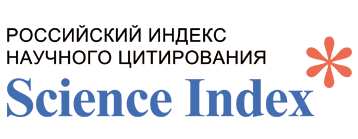THE ROLE OF MULTILINGUALISM IN THE ACADEMIC AND CAREER GROWTH OF YOUTH IN KAZAKHSTAN
Аннотация
This article analyzes the role of multilingualism in the educational and professional sphere of the life of Kazakhstanis. Kazakhstan is a polylinguistic society, where, according to statistics, people who speak more than one language make up the vast majority. The purpose of the study was to identify the advantages of youth proficiency in two or more languages to achieve academic and career growth in Kazakhstan. To achieve this goal, a sociological survey (questionnaire and interview) was organized among bachelor’s and master’s students of the L.N. Gumilyov Eurasian National University. The choice of the survey participants was determined by the purpose of the research – bachelor’s and master’s students participate not only in the educational process, but are already starting to build their careers. This feature of the target audience allowed obtaining objective data that were analyzed. As a result of working with theoretical sources and sociological survey data, conclusions were drawn on the representation of multilingualism that was formed among the survey participants; the degree of influence of multilingualism on education and professional growth; on the employer’s preferences for candidates with knowledge of more than one language; on the specifics of mastering another culture through learning the language of this culture and on the role of this knowledge in academic and professional achievements. It should be noted that the conclusions obtained in this research represent the initial stage of a large study in this area.
Ключевые слова:
language, multilingualism, multiculturalism, academic achievements, professional growthБиблиографические ссылки
Clyne M. Multilingualism //The handbook of sociolinguistics. – Blackwell, 2017. – P. 301-314.
Paradowski M. B. The benefits of multilingualism // Multilingual Living Magazine. 2010. – T. 3. - №. 2. – P. 18-20. URL: https://clck.ru/34tcxL
Diamond J. The benefits of multilingualism //Science. – 2010. – Т. 330. – №. 6002. – P. 332-333 URL: https://www.researchgate.net/publication/47429326
Zhumay N. et al. Multilingual Education in the Republic of Kazakhstan: Problems and Prospects //Social Inclusion. – 2021. – Т. 9. – No. 1. – P.56-62. URL: https://clck.ru/34tcyW
Benefits of multilingualism. / Google form survey. 2023. URL: https://forms.gle/SvgZGBeWA86tTJC97
Carter N., Nunan D. Teaching English for speakers of other languages. Cambridge: CUP. – 2001. - 367 p.
Jantassova D. D., Izotova A. S., Makhmetova M. K. MULTILINGUALISM AS ONE OF THE MODERN EDUCATION PRIORITIES IN KAZAKHSTAN // Naýka ı obrazovanıe: novoe vremıa. – 2018. – №. 2. – P. 374-383. URL: https://clck.ru/34td28
Cenoz J. et al. Benefits of linguistic diversity and multilingualism //Sustainable Development in a Diverse World (SUS. DIV) position paper, Research Task. 2006. V.1. URL: https://kalanga.org/wp-content/uploads/2015/12/Benefits-of-linguistic-diversity.pdf
Kurmanova B. Z. et al. Multilingual Practices in the Students’ Microcommunity //International Journal of Society, Culture & Language. – 2023. – Т. 11. – №. 1. – P. 146- 159. https://doi.org/10.22034/ijscl.2022.1978443.2862
Haukås, Å. Teachers’ beliefs about multilingualism and a multilingual pedagogical approach. International Journal of Multilingualism, 13(1), 1-18. 2015. DOI: 10.1080/14790718.2015.1041960
Опубликован
Как цитировать
Выпуск
Раздел
Лицензия
Copyright (c) 2023 Bulletin of Shokan Ualikhanov Kokshetau University Philological Series

Это произведение доступно по лицензии Creative Commons «Attribution-NonCommercial» («Атрибуция — Некоммерческое использование») 4.0 Всемирная.











